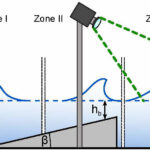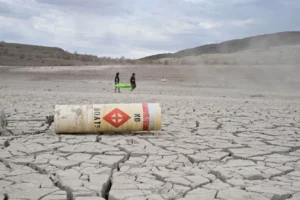The economic impacts on Nebraska from a nationwide shift to renewable energy should be studied, Sen. Bruce Bostelman told a panel of lawmakers Friday.
Bostelman told the Legislature’s Executive Board he wanted an independent consultant to look at the short- and long-term costs of replacing coal, natural gas and other plants with resources like wind and solar.
His bill (LB566) would appropriate $30,000 to examine the trends and potential economic impact of growing reliance of renewable energy sources in Nebraska.
It would also look at the economic benefits of maintaining coal, natural gas and nuclear plants, as well as whether or not the current shift toward more renewable resources “threatens the ability of power suppliers in the state to maintain existing baseload generation.”
“As energy policy around the nation is shifting to a more diverse set of generation sources, it is prudent for the Natural Resources Committee to examine the potential effects of those policies,” Bostelman told the Executive Board.
The shift to more renewable resources — what the Brainard senator referred to as “intermittent generation facilities” — could impact the lives of thousands of Nebraskans, he added, and could also affect the state’s ability to ensure electricity is there when Nebraskans need it.
But a trio of Omaha high school students, all part of Students for Sustainability, a chapter of Fridays for Future, part of a global movement started by environmental activist Greta Thunberg, told senators they thought the scope of the study was far too narrow and that the result was pre-determined based on the language of the bill.
Mia Perales, a student from Omaha South High School, said the proposed study appears poised to ignore previous reports that show the cost of generating electricity from renewable resources like solar and wind has dropped 80% in the last decade.
She said Nebraska has already fallen behind states like Iowa, which have become champions of renewable energy.
“A lot of people in Nebraska, politicians specifically, want to know why young Nebraskans are leaving,” Perales said. “I can tell you it’s not because the price of property taxes are raising, it is because our voices aren’t being heard and they aren’t being taken seriously.”
Omaha Central student Hunter Oakley told lawmakers the language in LB566 showed a “blatant bias.” The study would examine the negative economic impacts of renewable energy without doing the same for coal and gas, he said.
And Chloe Johnson, also a student at Omaha Central, said days like Friday in Nebraska, where it was cold but also sunny and breezy, would be ideal for solar and wind generation.
“While it makes it pretty miserable to be outside right now, it is a huge asset to our economy that is going underutilized,” Johnson said, adding the bill would put Nebraska further behind its neighboring states in renewable energy generation than it already is.
“There is a clear purpose to how this bill is written,” she said. “It is only looking at the negatives of renewables and the positives of fossil fuels because the person who wrote this bill knew that if it were a direct comparison, renewables would win economically and morally.”
Following the testifiers, Bostelman said the study was intended to take a snapshot of Nebraska’s current power generation and look at potential costs and risks associated with current trends.
Answering a question from Omaha Sen. Tony Vargas, Bostelman said he was amenable to expanding the scope of the study to include other factors.
The Executive Board did not take any action on Bostelman’s bill Friday.
Source: Lincoln Journal Star











Add Comment